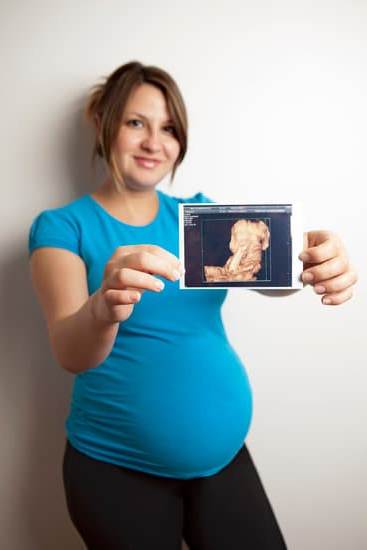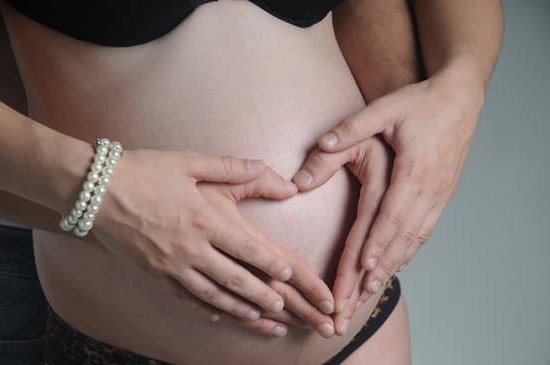Pregnancy tests are a crucial tool for women looking to confirm whether they are expecting a child. However, there are common misconceptions surrounding their accuracy and reliability. One such question that often arises is: does alcohol affect pregnancy test results? This article aims to explore this topic and shed light on how alcohol consumption may potentially impact the outcome of a pregnancy test.
Before delving into the potential effects of alcohol on pregnancy tests, it is essential to understand how these tests actually work. Pregnancy tests detect the presence of the hormone hCG, which is produced by the placenta after implantation occurs. There are various types of pregnancy tests available, each functioning slightly differently but ultimately aiming to detect this hormone in urine or blood samples.
Alcohol is metabolized by the body in a complex process that can have various effects on different bodily functions. One area of interest is how alcohol consumption may influence hormone levels in the body.
Since hCG is the hormone detected by pregnancy tests, it raises questions about whether alcohol could impact the accuracy of these tests by altering hormonal levels. In the next sections, we will explore this relationship further and provide insights into how alcohol consumption might affect pregnancy test results.
How Pregnancy Tests Work
Pregnancy tests work by detecting the hormone human chorionic gonadotropin (hCG) in urine or blood samples. This hormone is produced by the placenta shortly after a fertilized egg attaches to the uterine lining, indicating pregnancy. There are two main types of pregnancy tests – urine tests and blood tests. Urine tests, which are commonly used at home, can detect hCG levels as early as a few days after implantation, while blood tests conducted by healthcare professionals can provide even earlier detection.
Here are some key points to understand how pregnancy tests work:
- Urine-based pregnancy tests typically come in two forms: one that uses a test strip or stick, and another that utilizes midstream sampling.
- Blood tests, on the other hand, can measure lower levels of hCG and may provide more accurate results, especially in early pregnancy.
- The sensitivity of a pregnancy test refers to how effectively it can detect hCG levels. Some tests have higher sensitivities than others, allowing for earlier detection of pregnancy.
It’s important to note that alcohol consumption doesn’t directly interfere with the mechanism of how pregnancy tests work; however, it may indirectly impact hormone levels in the body. Understanding how alcohol affects your body’s processes can help you make informed decisions about when and how to take a pregnancy test if you have concerns about its accuracy.
By following best practices and being mindful of potential factors that can influence test results, you can ensure that you obtain reliable information regarding your pregnancy status.
Effects of Alcohol on the Body
Alcohol consumption can have various effects on the body, including how it may potentially interfere with the accuracy of a pregnancy test. When alcohol is consumed, it is metabolized by the liver and broken down into acetaldehyde before eventually being converted into acetate and then eliminated from the body. This process can take time, depending on factors such as the amount of alcohol consumed, an individual’s metabolism, and overall health.
One way in which alcohol may impact pregnancy tests is by potentially affecting hormone levels in the body. Pregnancy tests work by detecting the hormone hCG (human chorionic gonadotropin) in urine or blood, which is produced when a fertilized egg implants itself in the uterus.
Alcohol consumption could theoretically influence hormone levels due to its effects on the endocrine system. However, research on this specific topic is limited and inconclusive, making it difficult to definitively state that alcohol directly affects pregnancy test results.
It is important to note that while there may be some theoretical concerns about how alcohol consumption could potentially interfere with pregnancy test results, other factors such as timing of testing, following instructions correctly, and overall health play a significant role as well. Ultimately, anyone taking a pregnancy test should carefully consider all these factors to ensure accurate results and consult a healthcare professional if there are any doubts or uncertainties regarding the outcome.
Potential Impact of Alcohol on Pregnancy Test Results
When it comes to taking a pregnancy test, there are various factors that can potentially impact its accuracy, leading many to wonder: does alcohol affect pregnancy test results? To shed some light on this issue, it is essential to consider how alcohol consumption may interfere with the hormone levels detected by pregnancy tests.
Here are some key points to keep in mind regarding the potential impact of alcohol on pregnancy test results:
- Metabolism of Alcohol: Alcohol is processed by the liver and broken down into byproducts that can affect various bodily functions, including hormone regulation.
- Hormone Levels: Alcohol consumption has been shown to disrupt hormone levels in the body, which could potentially lead to fluctuations in hCG levels detected by pregnancy tests.
- Research Findings: While studies on the direct impact of alcohol consumption on pregnancy test accuracy are limited, it is crucial to be aware of how lifestyle choices like drinking alcohol can influence our body’s chemistry.
With these considerations in mind, it is advisable to approach taking a pregnancy test with caution if you have consumed alcohol recently. It is always best to follow the manufacturer’s instructions carefully and consider factors like timing, sensitivity of the test, and any substances that could potentially interfere with the results.
If you have any doubts or concerns about your pregnancy test results due to alcohol consumption or other factors, consulting a healthcare professional for further guidance and testing is recommended for peace of mind.
Factors to Consider When Taking a Pregnancy Test
Alcohol can potentially have an impact on pregnancy test results, although the extent of this influence may vary depending on individual factors. When considering whether alcohol consumption can affect a pregnancy test, it is essential to understand how these tests work and what they are designed to detect. Pregnancy tests function by measuring the levels of human chorionic gonadotropin (hCG) in urine, a hormone produced during early pregnancy.
Studies have shown that alcohol consumption does not directly interfere with the accuracy of pregnancy tests in detecting hCG levels. However, excessive alcohol intake could potentially affect hormone levels in the body, which might indirectly impact the results of a pregnancy test. It is important to note that moderate alcohol consumption is unlikely to significantly alter hormone levels to the extent that it would affect the outcome of a pregnancy test.
When deciding to take a pregnancy test, it is crucial to follow the instructions provided with the test kit carefully. Factors such as timing, proper handling of the test device, and using first-morning urine can all contribute to obtaining accurate results. While alcohol consumption may not directly invalidate a pregnancy test result, it is advisable to consider minimizing alcohol intake if you suspect you might be pregnant or are actively trying to conceive.
| Impact of Alcohol Consumption on Pregnancy Test Results | Information |
|---|---|
| Direct interference with pregnancy test accuracy | Unlikely based on current research findings |
| Indirect effects on hormone levels | Possible but generally minimal with moderate alcohol consumption |
Tips for Taking an Accurate Pregnancy Test
Understanding the Relationship Between Alcohol and Pregnancy Tests
When it comes to taking a pregnancy test, many individuals may be unaware of the potential impact alcohol consumption can have on the results. The question of “does alcohol affect pregnancy test” is a common one, as there is some concern about whether drinking alcohol prior to taking a test can alter the outcome. It is crucial to delve into how alcohol interacts with the body and if it can influence hormone levels that are detected by pregnancy tests.
Metabolism of Alcohol and Hormone Levels
Alcohol is metabolized in the liver, where enzymes break it down into byproducts that can have various effects on bodily functions. Some studies suggest that excessive alcohol consumption may disrupt hormone levels, including those related to pregnancy. Due to this potential impact on hormones, there is speculation that alcohol intake could potentially interfere with the accuracy of a pregnancy test. Understanding how alcohol affects hormone regulation in the body sheds light on how it might possibly influence pregnancy test results.
Guidelines for Taking a Reliable Pregnancy Test
To ensure the accuracy of a pregnancy test, it is essential to follow the instructions provided with the test kit meticulously. This includes information on when to take the test, how to collect urine samples properly, and what factors to avoid that could potentially skew results.
For individuals who are concerned about how their alcohol consumption might affect their test results, it is advisable to abstain from drinking before taking a pregnancy test for more reliable outcomes. Taking precautions like these can help minimize any potential interference from external factors like alcohol consumption in obtaining accurate results from a pregnancy test.
What to Do if You’re Uncertain About Your Pregnancy Test Results
When faced with uncertainty regarding pregnancy test results, especially in relation to alcohol consumption, it is important to approach the situation methodically. If you find yourself questioning the accuracy of your test due to recent alcohol intake, there are specific steps you can take to gain clarity and peace of mind.
Steps to Take if You Suspect Alcohol May Have Influenced Your Test
Firstly, if you have any doubts about the reliability of your pregnancy test results after consuming alcohol, consider taking another test. It is advisable to wait a few days before retesting as this allows time for the hormone levels in your body to potentially change and provide a more accurate result. Following the instructions on the packaging of the pregnancy test is crucial for obtaining reliable results.
Consulting a Healthcare Professional
If you are still unsure after retesting or feel uncertain about how alcohol consumption may have affected your pregnancy test results, it is recommended to seek guidance from a healthcare professional. A doctor or nurse can provide further testing options such as blood tests to confirm pregnancy accurately. They can also offer support and advice on next steps based on your individual circumstances.
Importance of Seeking Professional Help
In situations where there is doubt regarding pregnancy test results and alcohol consumption’s influence, consulting a healthcare provider is vital for proper guidance and clarification. They can assess the situation objectively, provide appropriate medical advice, and help alleviate any concerns or confusion you may have. Remember that seeking professional help when needed is always a wise decision when it comes to matters as important as determining pregnancy status.
Conclusion
In conclusion, the question “Does alcohol affect pregnancy test?” is one that requires careful consideration and understanding. While there is limited research on the direct impact of alcohol consumption on pregnancy test results, it is important to acknowledge that alcohol can potentially interfere with hormone levels in the body. This interference may lead to inaccurate results when taking a pregnancy test.
It is crucial for individuals who are trying to conceive or suspect they may be pregnant to be mindful of their alcohol consumption and its potential effects on pregnancy test accuracy. Following the instructions on the pregnancy test packaging, choosing an appropriate time to take the test, and minimizing any factors that could influence the results are essential steps in ensuring reliable outcomes.
Ultimately, when faced with uncertainty about pregnancy test results possibly influenced by alcohol consumption, seeking guidance from a healthcare professional is advised. Consulting a doctor or healthcare provider for further testing and advice can provide clarity and peace of mind regarding one’s pregnancy status. Making informed decisions about alcohol consumption during pregnancy and when attempting to conceive is key to promoting overall health and well-being for both mother and child.
Frequently Asked Questions
Can Alcohol Mess With a Pregnancy Test?
Alcohol consumption does not directly affect the accuracy of a pregnancy test. However, it is generally advisable to avoid consuming alcohol if you suspect you might be pregnant, as it could potentially harm the developing fetus.
What Drinks Can Cause a False Positive Pregnancy Test?
Certain drinks or substances that contain hCG (human chorionic gonadotropin) can potentially cause a false positive pregnancy test result. These include some fertility medications, certain rare medical conditions, or in extremely rare cases, tumors that produce hCG.
What Can Damage a Pregnancy Test?
There are several factors that can damage a pregnancy test and impact its results. Leaving the test exposed to light or moisture, using an expired test kit, not following the instructions correctly, or having a faulty or damaged test can all lead to inaccurate results.
It’s important to carefully read and follow the instructions provided with the test for accurate readings.

Welcome to my fertility blog. This is a space where I will be sharing my experiences as I navigate through the world of fertility treatments, as well as provide information and resources about fertility and pregnancy.





